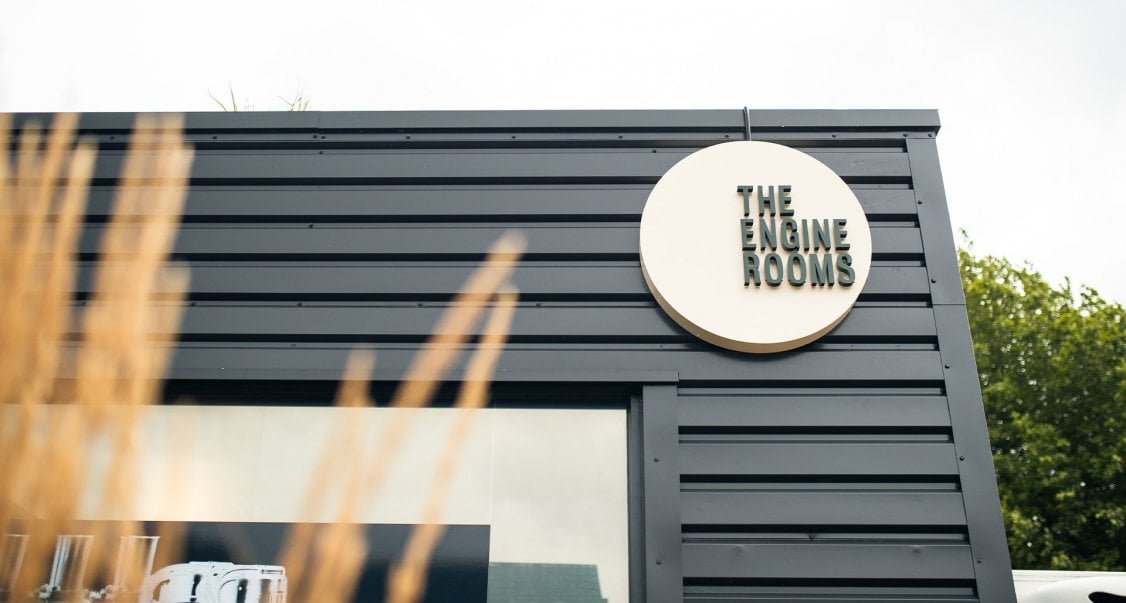
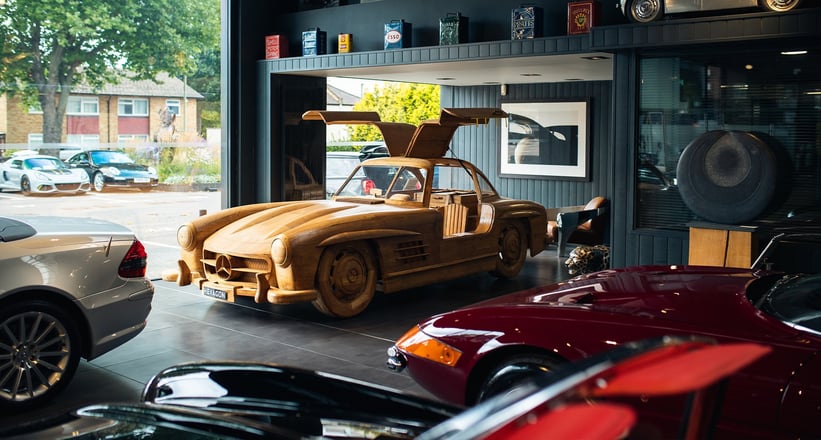
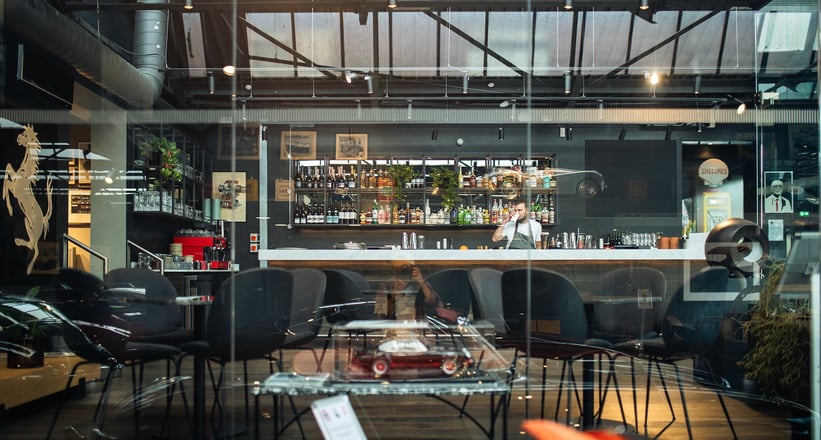
The brainchild of Paul Michaels, chairman of Hexagon Classics, and his late wife, Racheline Michaels, who contributed to the majority of the interior design, The Engine Rooms is what happens when someone decides to create a money-no-object haven for petrolheads and foodies alike. Stepping through the front door, past a cross-section of a 4.2-litre Jaguar engine, you enter the bar and reception, where you can enjoy anything from a cappuccino to an espresso martini while gazing longingly at the stunning array of dream cars on the showroom floor below. If ever a restaurant had a good view, this is it. What’s immediately apparent on entry is the quality of the finishes and the calibre of its execution. “If I had known what we were going to spend when we started, I wouldn’t have started at all”, jokes Paul. “No-one in their right mind would attempt this". Despite The Engine Rooms' exquisite design, Paul doesn’t care much for Michelin stars.
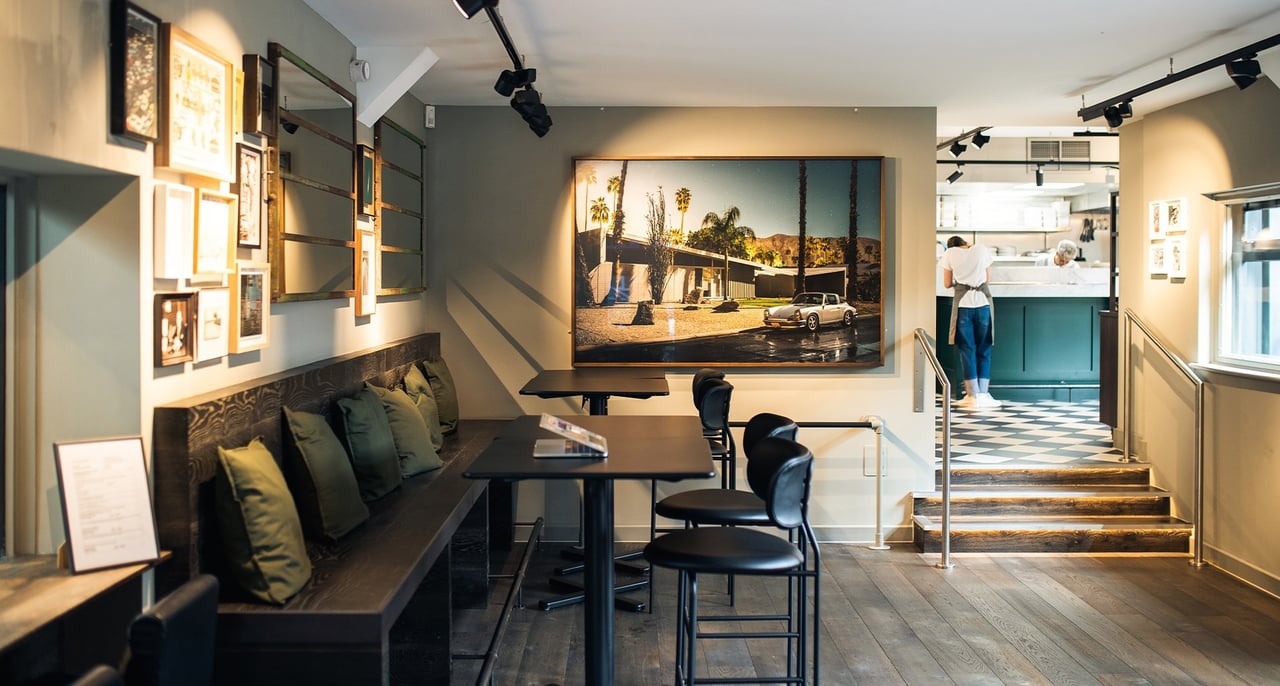
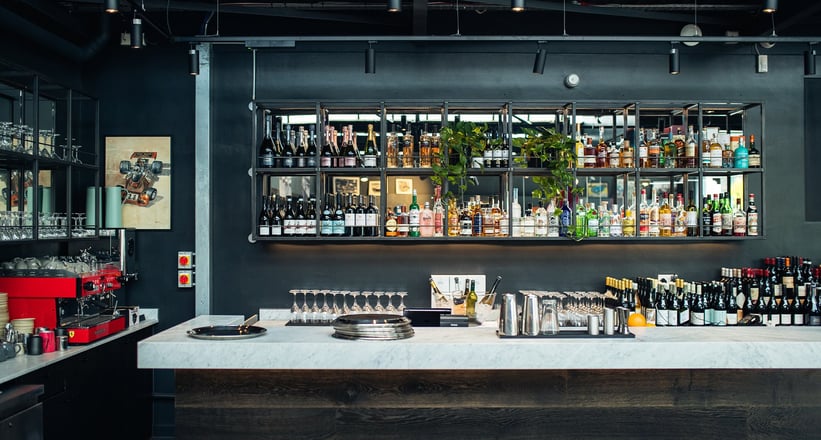

Heading through the bar, The Engine Rooms begins to unfold further into a space of almost unbelievable size for a London-based restaurant. As we enter the kitchen, which forms an ‘L’ around the large open-air seating area, we pass head chef James Harrison, who’s busy experimenting with various ingredients and laughing with the staff ahead of the lunchtime rush. For a restaurant that has only been open for a matter of months, it appears astonishingly lived-in, with barely an inch of wall that isn’t occupied by automotive artwork, all hand-selected by Paul’s children. It’s an unusually sunny day for London, and seated outside, isolated from the noise of the city, with a view of the clouds and treetops above, it’s easy to forget that you’re not actually in the middle of the Cotswolds. However, the outdoor seating serves a dual purpose. Built during the brunt of the pandemic, The Engine Rooms is a restaurant designed for the post-Covid era. The ample space between tables and light breeze passing through the facility make it a breath of fresh air compared to the congested restaurants in the heart of the city. And on the occasions when London’s weather reverts to type, there’s a large awning that covers the entirety of the courtyard, as well as a multitude of space heaters, ensuring a tropical climate year-round.
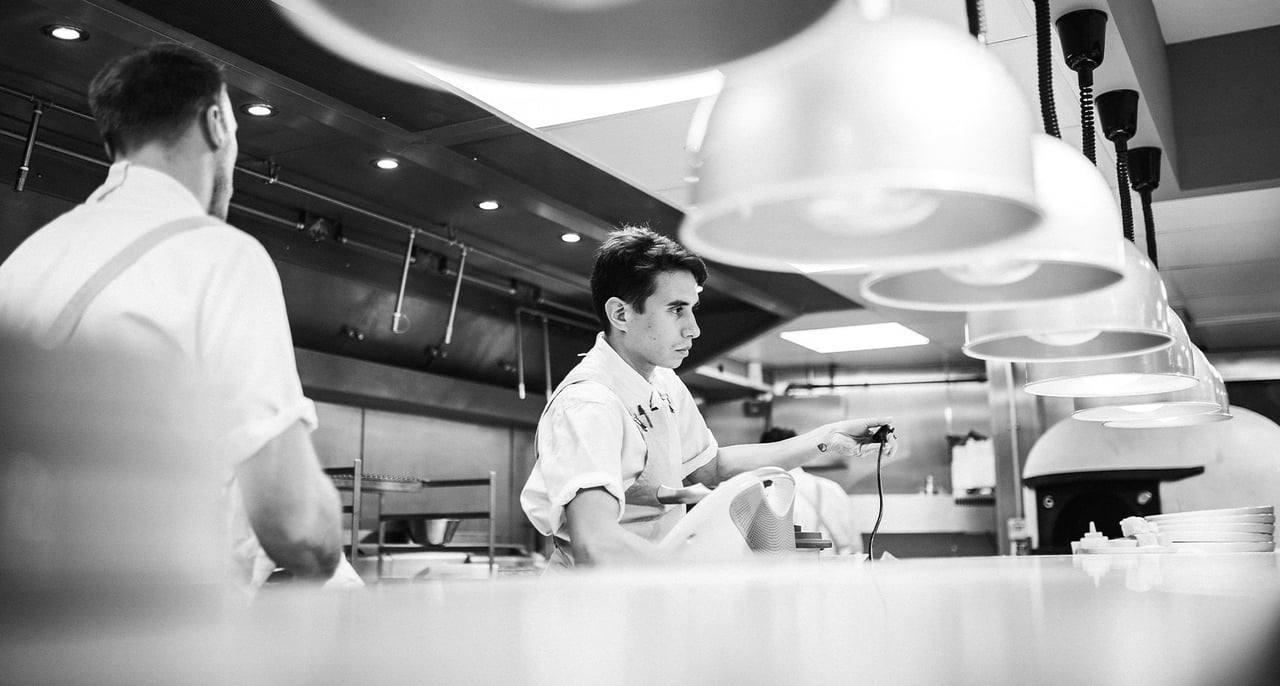
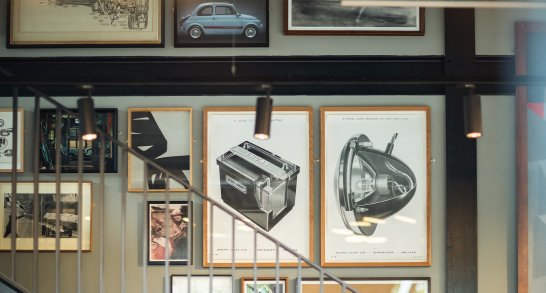
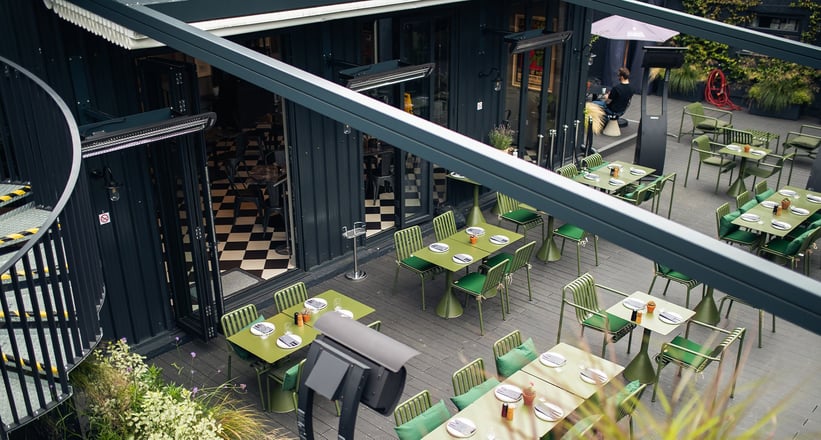
Separating the courtyard from the road is the events space, broken up into two large halls with their own dedicated, fully equipped kitchen, all available to rent. The Engine Rooms has already enjoyed its first wedding here, with 160 happy customers as a result. Paul’s vision is to host three to four events per week, mainly organised by customers, but some, such as the jazz nights, are hosted by Hexagon itself. Elsewhere, across the courtyard, is Bottles ’N’ Jars, Paul’s interpretation of Harrods’ Food Hall, stocked with his favourite ingredients from across the Mediterranean and a healthy selection of wines curated by sommelier Bert Blaize, who has also created wine pairings for each dish at the restaurant.

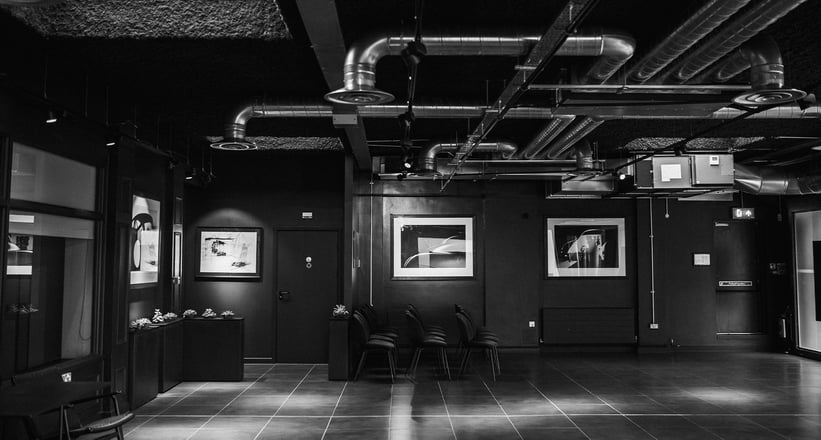
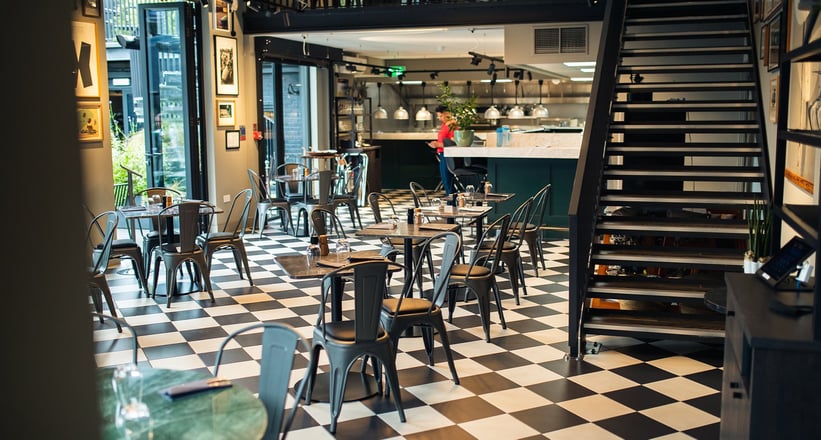
Having completed a tour of the stunning facility, we sat down with head chef James to get a better understanding of the menu. While still young and evidently brimming with passion, he has certainly been around the block. Previous exploits include Taka Marylebone, which he opened with Taiji Maruyama; and executive chef at Nobu. “The main concept is Mediterranean, but we like to say modern European”, says James, “We’re very focused on sustainability and supporting local suppliers, so we try to save on air miles – the less that ingredients have to travel, the better”. Impressively, the menu features almost no red meat, save for seasonal salt marsh lamb from the Cornish coast. Everything is free-range, organic and responsibly sourced, regardless of the ingredient.
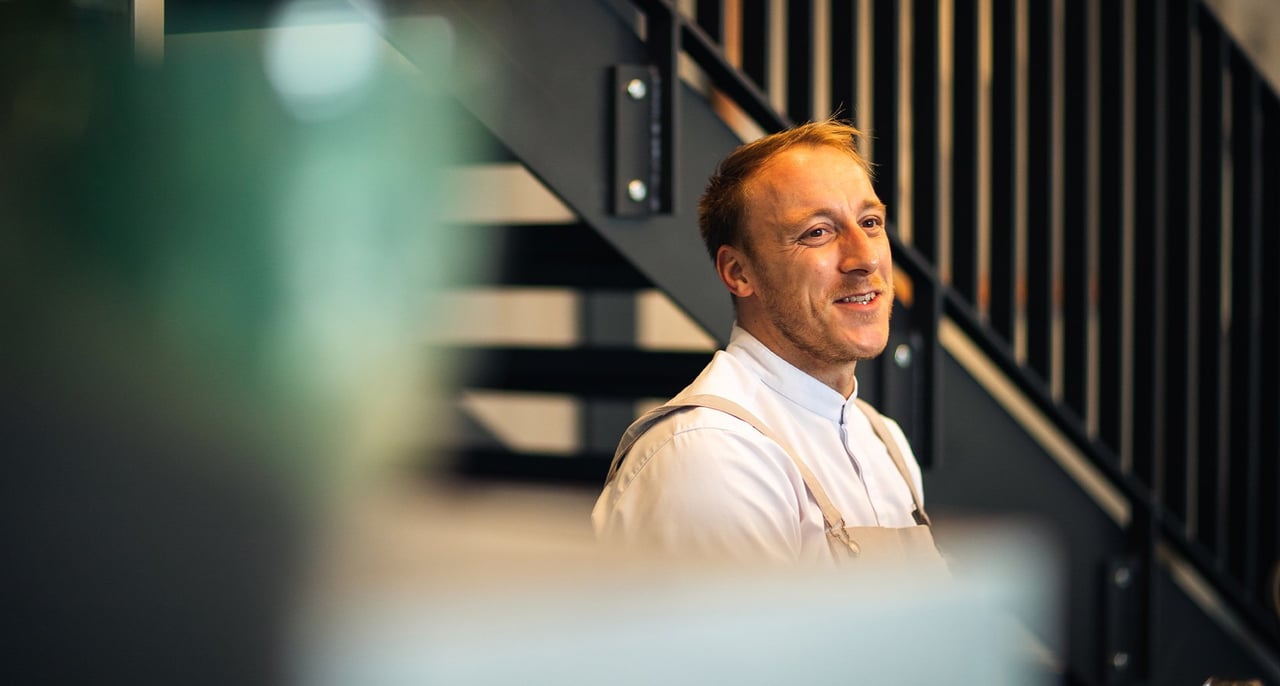
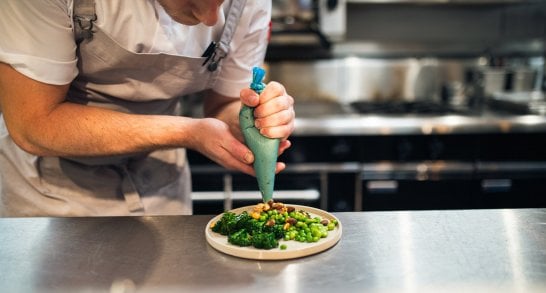

Paul, who hasn’t eaten red meat for 10 years, is clearly as passionate about ecology as James is. “What’s going on with global warming is so bloody obvious that we can’t continue as we are; hopefully red meat will drop off the menu everywhere, and rightly so”. He continues: “I’m trying to offer something that people can come to with a clear conscience and not feel like they’re contributing to a global problem”. Paul acknowledges that the lack of steak will deter a certain amount of customers, “but there’s plenty else here to enjoy”
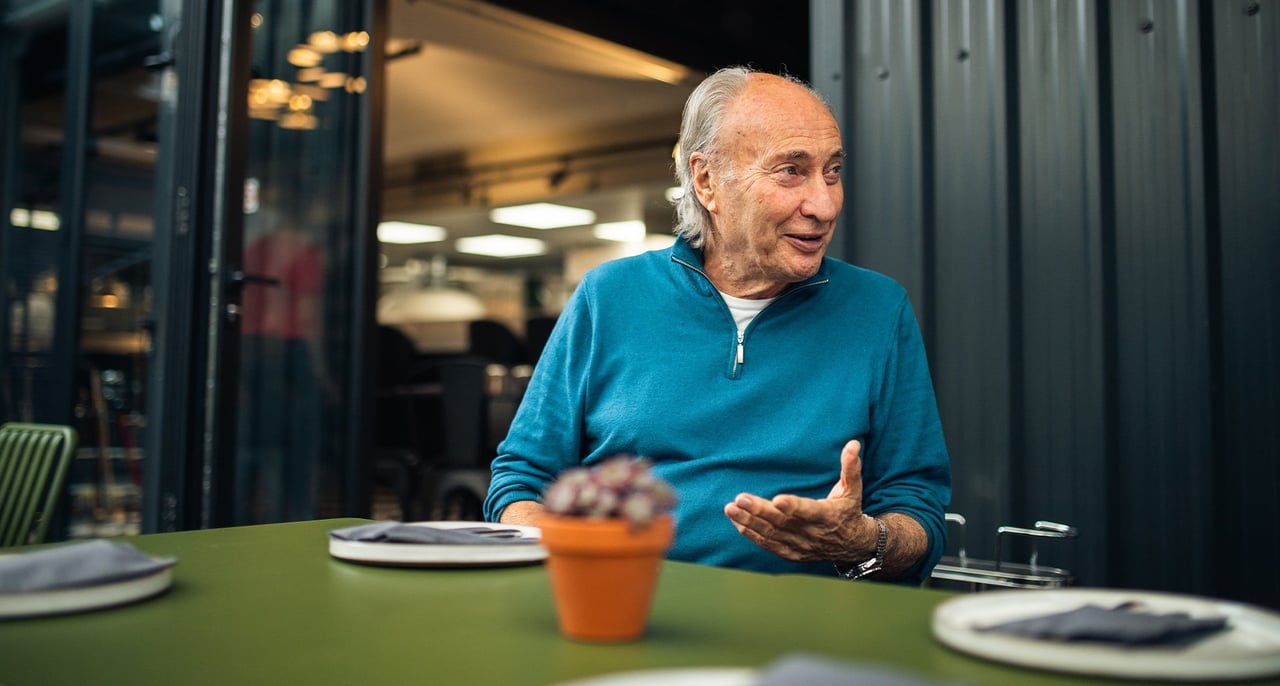
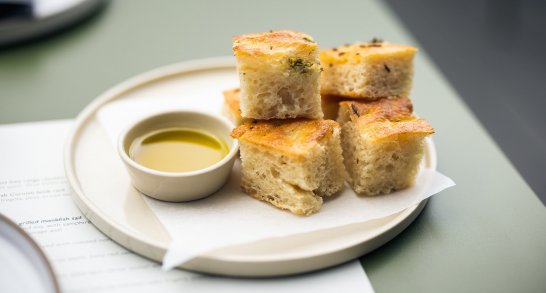

While waiting to sample some of the menu, we’re presented with a deliciously light focaccia and some of the finest olive oil I’ve ever tasted. Forget the bread; you could drink this stuff straight from the bottle. Next, the Devon hand-picked crab, compressed cucumber, rainbow radish salad and tapioca crab crisp arrives at the table – a beautifully plated dish that bursts with coastal flavour. While the crab is certainly the focal point, the cucumber really elevates the overall flavour; its cool, crunchy texture perfectly contrasts with the soft and salty crab meat. After enjoying that, our eyeballs and olfactory receptors were graced with the arrival of the mullet ceviche. The dish is simply bristling with colour, with the cured egg yolk taking centre stage among the samphire, pistachio, and confit tomato dressing. Here, the delicate flavour of the mullet is complemented by flashes of spice, hinting at the range of influences informing the menu’s diverse set of dishes. “The menu is very fish-focused and vegetable-heavy”, says James. “We’re trying to reinterpret European classics without overstepping the mark and without alienating customers, which can occasionally happen at other high-end restaurants.”

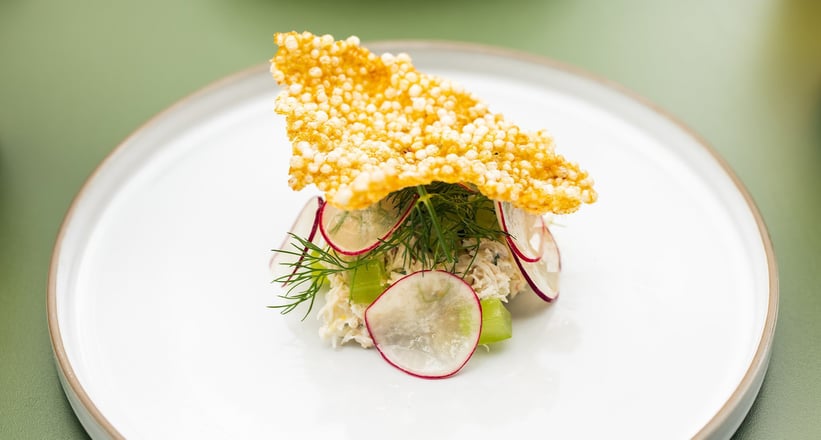
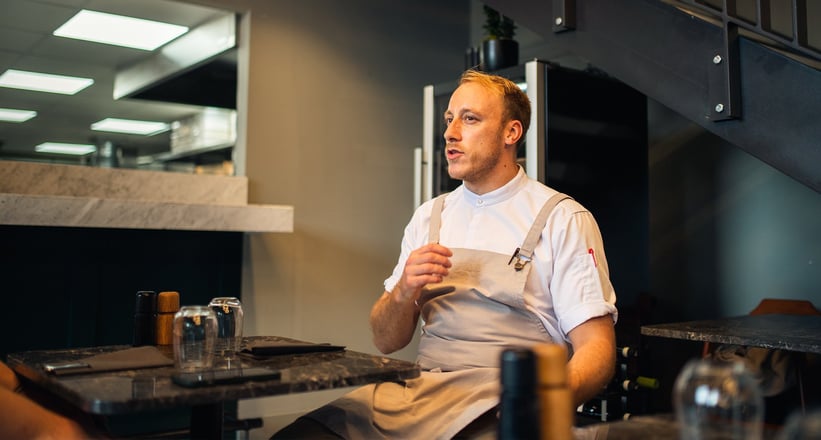
Overall, while the interior design, quality of finishes and sparkling menu go a long way to convincing even the lamest of palates of The Engine Rooms’ excellence, the extra touches such as the focus on ecology and general familial atmosphere really contribute to an outstanding dining experience. The perfect example of this is Paul’s approach to his staff. “I insisted there’s no difference between clients and staff in terms of treatment”, he says. “They get great food, they’re fed properly, and they all seem to be happy, which is really important”. Having spent an afternoon marvelling at what Paul has accomplished here at The Engine Rooms, in spite of a global pandemic, it’s easy to see why.
Photos: Tom Shaxson © 2021


























